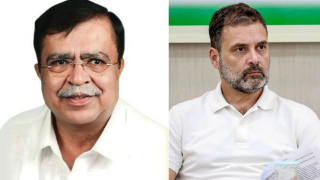
Nirmala Sitharaman attends Parliament proceedings. (Social Media)
National News: Union Finance Minister Nirmala Sitharaman on Monday reintroduced the Income Tax Bill 2025 in the Lok Sabha, replacing the over six-decade-old Income Tax Act, 1961. The move comes just days after the bill was first tabled in Parliament but subsequently withdrawn due to an adjournment and the need for further revisions.
The Finance Minister had initially presented the bill last Friday; however, the proceedings of the House were disrupted, forcing her to withdraw it temporarily. Following inputs from the Lok Sabha Select Committee, chaired by BJP leader Baijayant Panda, the government incorporated significant amendments before re-tabling it. According to Parliamentary Affairs Minister Kiren Rijiju, the revised draft is “completely new” and markedly different from its predecessor, with extensive work done to simplify and modernize tax provisions.
The Select Committee submitted its report on July 21, offering 285 suggestions for improving the bill. These ranged from language simplification and clearer drafting to more accurate cross-referencing of provisions. The government has accepted all recommendations, signalling its intent to make the law more taxpayer-friendly and transparent.
One major concern addressed in the new version relates to tax refunds. The earlier draft had stipulated that taxpayers who failed to file returns within the prescribed deadline would forfeit their refund entitlement. The committee proposed scrapping this clause, a suggestion now incorporated into the revised bill.
#Monsoonsession2025
— SansadTV (@sansad_tv) August 11, 2025
MoS @mppchaudhary moves both bills together "The Manipur Goods and Services Tax (Amendment) Bill, 2025" and "The Manipur appropriation (No. 2) Bill, 2025" for consideration and return in #RajyaSabha. Also takes THE BUDGET (MANIPUR), 2025–26 for discussion pic.twitter.com/J5K9CzDk3s
Another significant adjustment involves Section 80M, which allows certain companies to claim deductions on inter-corporate dividends. The provision was missing from the bill tabled last week but has been reinstated in the updated draft after the panel’s intervention.
The committee also recommended introducing a NIL TDS Certificate option for eligible taxpayers, simplifying compliance and reducing unnecessary tax deductions at the source. This measure, aimed at easing cash-flow issues for businesses and individuals, has found a place in the revised text.
Government sources describe the Income Tax Bill 2025 as not just an amendment but a comprehensive overhaul of India’s direct tax framework. While the 1961 Act has undergone numerous amendments over the years, policymakers believe a fresh law is necessary to align with evolving economic realities, digitalization, and global best practices.
The bill’s passage could pave the way for a more modern, accessible, and equitable tax regime. With all major committee recommendations included, it is expected to face smoother deliberations in Parliament. If enacted, it will mark a historic shift in India’s fiscal legislation, replacing a law that has been the cornerstone of the country’s tax administration for more than 60 years.













Copyright © 2025 Top Indian News
